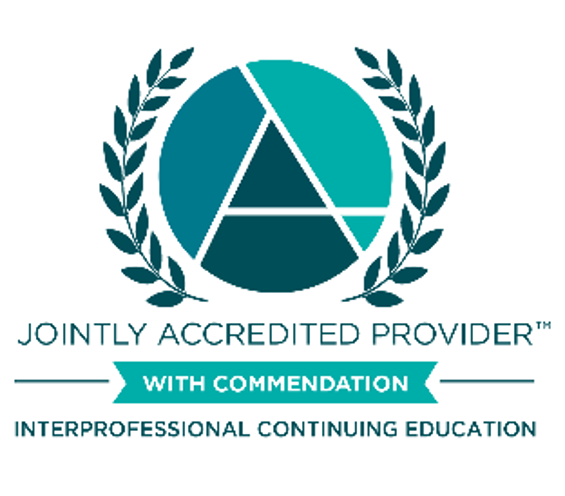
Foundations of School Nursing Practice
How do school nurses work at the intersection of public health education, and primary care to keep students safe, healthy, and ready to learn?
School nurses play an essential role in keeping students healthy, safe, and ready to learn. When accepting a position in a school environment, nurses sometimes don't fully understand their role beyond providing clinical services to students. They need additional information about their role in order to become leaders and public health partners in ensuring health and wellness - in their school, district, and community.
This foundational course introduces the laws, regulations, and guidelines that affect professional school nursing practice in Massachusetts. Key topics relevant to school nursing including health equity, emergency preparedness, communicable diseases, behavioral health, and managing complex health conditions are discussed.
This is one of two training workshops mandated by the Massachusetts Department of Public Health (MDPH) in order to be licensed as a school nurse by the Massachusetts Department of Elementary and Secondary Education (DESE).
Target Audience
This is one of two training workshops mandated by the Massachusetts Department of Public Health in order to be licensed as a school nurse. It is designed for:
- Nurses seeking licensure by the Department of Elementary and Secondary Education (DESE) as a school nurse in Massachusetts
- Anyone interested in learning about the role and responsibilities of school nurses in Massachusetts
Learning Objectives
After completing the training, participants will be able to:
- Support student health and academic success
- Contribute to a healthy and safe school environment
- Act as health and wellness leaders in their school, district, and community
| Lessons | Estimated Time |
|---|---|
Lesson #1 - Overview of School Health
| 1 hour 20 minutes (includes an evaluation) |
Lesson #2 - Relevant Laws & Regulations
| ~ 3 hours (includes an evaluation) |
Lesson #3 - School Health Management: Community and Public Health
| ~ 5 hours (includes an evaluation) |
Lesson #4 - Students and Families
| ~ 2.5 hours (includes an evaluation) |
Lesson #5 - First Year: Keys to Success
| ~ 35 minutes (includes an evaluation) |
Boston University Chobanian & Avedisian School of Medicine asks all individuals involved in the development and presentation of Accredited Continuing Education activities to disclose all financial relationships with ineligible companies. This information is disclosed to all activity participants prior to the start of the educational activity. Boston University Chobanian & Avedisian School of Medicine has procedures to mitigate all relevant financial relationships with ineligible companies. In addition, faculty members are asked to disclose when any unapproved use of pharmaceuticals and devices is being discussed.
In accordance with the Standards for Integrity and Independence in Accredited Continuing Education, all relevant financial relationships that faculty, planners, authors, and anyone who may be in control of content have with ineligible companies have been mitigated.
No faculty has any financial relationships to disclose.
Faculty

Amy Dark, DNP, MSN-PH, BA, RN
Director, SHIELD, Community Health Sciences
Course Director

Beverly Heinze-Lacey, MPH, BSN, RN
Former Director, SHIELD
Nurse Planner

Kathleen MacVarish, MS
Instructional Designer, Associate Professor of the Practice, Environmental Health Professor of the Practice, Environmental Health (now retired)
 Erin Sivak, MSN, BSN, RN
Erin Sivak, MSN, BSN, RN
SME
Reviewer
 Karen Robitaille, MBA, MSN, RN, NCSN
Karen Robitaille, MBA, MSN, RN, NCSN
Director of School Health Services
Reviewer
CNE Program Manager: Lesly Zapata, MPH
 In support of improving patient care, Boston University Chobanian & Avedisian School of Medicine is jointly accredited by the Accreditation Council for Continuing Medical Education (ACCME), the Accreditation Council for Pharmacy Education (ACPE), and the American Nurses Credentialing Center (ANCC), to provide continuing education for the healthcare team.
In support of improving patient care, Boston University Chobanian & Avedisian School of Medicine is jointly accredited by the Accreditation Council for Continuing Medical Education (ACCME), the Accreditation Council for Pharmacy Education (ACPE), and the American Nurses Credentialing Center (ANCC), to provide continuing education for the healthcare team.
Nursing Contact Hours: 12.00 contact hours, of which 0 are eligible for pharmacology credit.
SHIELD is a DESE-approved provider for PDPs. PDP certificates are issued for programs/series lasting 10 or more hours on a topic. CNE certificates are also issued for eligible courses. Learners may use CNE certificates toward PDPs.
Date of New Enduring Material Release: 11/21/2023, 11/13/2024, 11/12/2025
Date of New Enduring Material Expiration: 11/19/2026
Available Credit
- 12.00 ANCC
- 12.00 Participation
Price
Please email [email protected] or call 617.358.5005 with any technical, content, and/or payment questions.
Disclosure
THIS CONTINUING EDUCATION PROGRAM IS INTENDED SOLELY FOR EDUCATIONAL PURPOSES FOR QUALIFIED HEALTH CARE PROFESSIONALS. IN NO EVENT SHALL BOSTON UNIVERSITY BE LIABLE FOR ANY DECISION MADE OR ACTION TAKEN IN RELIANCE ON THE INFORMATION CONTAINED IN THE PROGRAM. IN NO EVENT SHOULD THE INFORMATION CONTAINED IN THE PROGRAM BE USED AS A SUBSTITUTE FOR PROFESSIONAL CARE. NO PHYSICIAN-PATIENT RELATIONSHIP IS BEING ESTABLISHED. IN NO EVENT SHOULD INFORMATION IN THE MATERIALS REGARDING LAWS, REGULATIONS, OR LEGAL LIABILITY BE CONSIDERED LEGAL ADVICE OR USED AS A SUBSTITUTE FOR CONSULTING WITH AN ATTORNEY.
Copyright
This material is copyrighted by the Massachusetts Department of Public Health (MDPH). MDPH grants permission for use of these materials for non-commercial educational use only, provided credit is given to the MDPH. Modification of content is permitted only with prior approval of the MDPH School Health Unit.
Special Services / Dietary Needs
Boston University strives to be accessible, inclusive, and diverse in our facilities, programming, and academic offerings. Your experience in this event is important to us. If you have a disability, require communication access services for the deaf or hard of hearing, or believe that you require a reasonable accommodation for another reason please contact the CCE Office to discuss your needs. Please contact us at [email protected].
Required Hardware/software
If you have any technical help/password questions or questions regarding course payment, email [email protected].
Technical requirements for accessing online courses:
| Operating System | Windows XP–Windows 11, Mac OS X 10.8 or greater |
| Processor | Intel Core 2 or Pentium 4, 2-GHz or higher |
| Memory | 2 GB of RAM or higher |
| Browser | Browser with pop-up blocker disabled: Google Chrome v39 or later, Mozilla Firefox v34 or later, Internet Explorer v8 or later, Microsoft Edge, Apple Safari v6 or later. |
| Sound Card / Speakers | This course does use audio. Closed captioning is available. |
| Monitor / Video Card | SVGA or better (capable of at least 1024 X 768 resolution, 16-bit graphics) |

 Facebook
Facebook X
X LinkedIn
LinkedIn Forward
Forward
